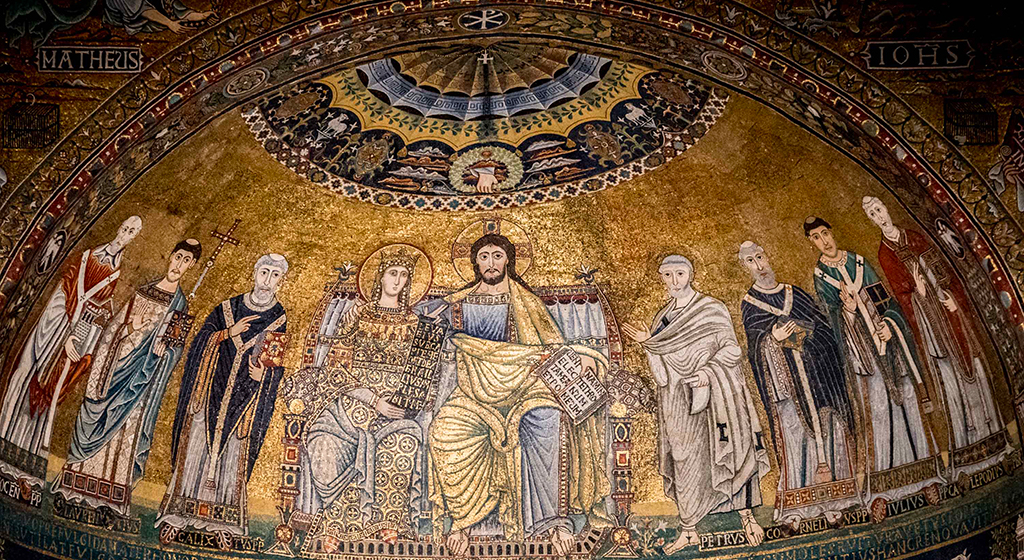Memory of the Church
Reading of the Word of God
Alleluia, alleluia, alleluia
I am the good shepherd,
my sheep listen to my voice,
and they become
one flock and one fold.
.
Alleluia, alleluia, alleluia
Sirach 5,1-8
Do not put your confidence in your money or say, 'With this I am self-sufficient.' Do not be led by your appetites and energy to follow the passions of your heart. And do not say, 'Who has authority over me?' for the Lord will certainly give you your deserts. Do not say, 'I have sinned, but what harm has befallen me?' for the Lord's forbearance is long. Do not be so sure of forgiveness that you add sin to sin. And do not say, 'His compassion is great, he will forgive me my many sins'; for with him are both mercy and retribution, and his anger does not pass from sinners. Do not delay your return to the Lord, do not put it off day after day; for suddenly the Lord's wrath will blaze out, and on the day of punishment you will be utterly destroyed. Do not set your heart on ill-gotten gains, they will be of no use to you on the day of disaster.
Alleluia, alleluia, alleluia
I give you a new commandment,
that you love one another.
Alleluia, alleluia, alleluia
There is a series of negative commands in this passage. It is one of the common ways, especially in the wisdom books, that the Word of God wants to guide the reader. Also, the commandments that we find in the legislative parts of the Pentateuch are sometimes similar. The passage opens with an invitation repeated a bit later, concerning wealth: "Do not rely on your wealth." In verse 8 it becomes, "Do not depend on dishonest wealth." The Bible often warns us about relying on wealth. Jesus himself warns his disciples about it, saying in the Beatitudes, "Woe to you who are rich" (Lk 6:24). Trust in wealth is closely linked to pride ("I am sufficient for myself"), which makes us live with a sense of security, arrogance, as if we were masters of everything: "Do not say, 'Who can have power over me?'" The reference is to the occasions in which we consider sin to be something normal, with no weight or consequence: "Do not say, 'I sinned, yet what has happened to me?'" Even God's forgiveness is taken for granted, a kind of free pass that does not ask for anything. Sometimes we become habituated to sin, habituated to repeating ourselves and the idea that "what can ever come of it?" But Sirach instead exhorts: "Do not delay to turn back to the Lord, and do not postpone it from day to day." Putting off conversion is a deceptive choice, but unfortunately it is easy to repeat that there is always time for it. When the Word of God calls us, we must not put it off. We gravely hurt ourselves renouncing to the Lord is offering us the possibility of transfiguring our lives.
